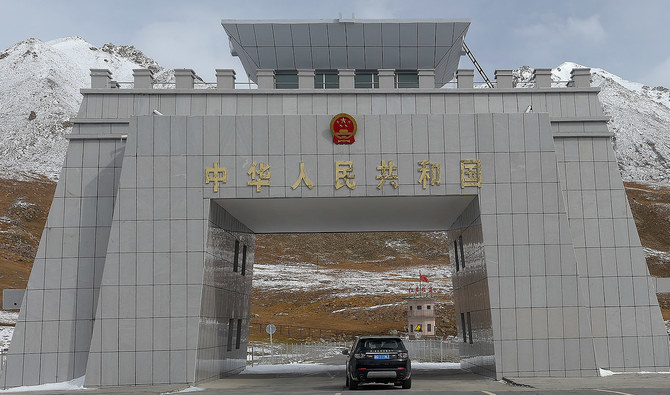ISLAMABAD: A leading Pakistani fruits exporters association said on Wednesday it has set an ambitious target of exporting 125,000 tons of mangoes from May to September this year to earn $100 million in revenue, hoping to export 70 percent of these to markets in the Middle East.
Pakistan is the world’s fourth-largest mango producer, with the fruit’s exports generating millions of dollars in revenue annually, according to the Pakistan Fruit and Vegetables Export Association (PFVEA).
Pakistan’s 20 varieties of mangoes come second only to oranges as the most-produced fruit in the country. The country produces around 1,800,000 metric tons of mangoes annually, with 70 percent grown in Punjab, 29 percent in Sindh and 1 percent grown in Khyber Pakhtunkhwa.
“Pakistan is aiming to export 125,000 tons of mangoes this season, 25 percent more than last year’s target of 100,000 tons, with exports having started on May 25 and continuing until the end of September,” PFVEA Patron-in-Chief Waheed Ahmed told Arab News.
“We are hoping to export 70 percent of this target to Middle Eastern countries, our largest market, and if achieved, the country is expected to earn an estimated $100 million in foreign exchange,” he added.
However, Ahmed warned adverse effects of climate change may impact the amount of mangoes Pakistan produces this year.
Pakistan, which has faced irregular weather patterns ranging from heat waves and unusually heavy rains, is frequently ranked among the most adversely affected countries due to climate change effects.
Mango production has been on the decline in Pakistan for the past three consecutive years.
“Mango production in Pakistan is consistently declining due to climate change and water scarcity and there is a risk of up to 25 percent reduction in total mango production this year as well,” Ahmed warned.
After the projected decline, the PFVEA official said this season’s total mango production may come down to around 1.4 million tons
“However, we have increased the export target because we are exporting only 125,000 tons out of the estimated 1.4 million tons, so we remain hopeful of achieving it despite all challenges,” Ahmed said.
Ahmed called for interventions such as improved water management, production of climate-resilient mango varieties, research and development and modernization of agriculture and horticulture.
He said efforts were underway to boost mango exports to non-traditional markets such as Japan, the United States, South Korea and Australia, with a special focus on expanding exports to Turkiye and China.
He noted that regional tensions, particularly Pakistan’s conflict with India and the Israel-Iran tensions, have led to higher export costs due to additional charges by shipping companies on Pakistani cargo.
“We urge the Federal Ministry of Commerce and the Ministry of Maritime Affairs to intervene and eliminate these extra charges to help improve export competitiveness,” Ahmed said.
Farmers and exporters agreed adverse climate conditions had affected not only the volume of production but also the quality of mangoes.
“We have been facing losses due to multiple factors, including low yield and lower-than-expected demand caused by conflicts in the Middle East,” Asif Ahmed, an exporter from Iftikhar Ahmed & Co, told Arab News.
Asif, who has been exporting mangoes for over six decades, hoped the Iran-Israel ceasefire would improve the situation and that fruit prices would rise to help cover the losses.
“We have farms in Sindh’s Tando Allahyar and Mirpur Khas districts where production was almost around 30 percent less than normal this year,” Asif said.
Amjad Hussain, an exporter from Punjab’s Multan city, agreed climate change had reduced the size of the mangoes and their quality as well.
“It has affected more than 25 percent of our yield, which will reduce our exports, though the exact figure will be clear by September,” Hussain said.















